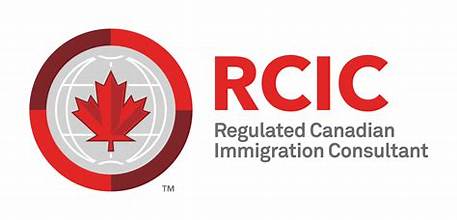The Future of Immigration in Canada Amid COVID-19 & The Municipal Nominee Program (MNP)
Canada has long been known for its open-door immigration policy and its commitment to welcoming newcomers from around the world. However, the global COVID-19 pandemic has introduced new challenges that affect all sectors of Canadian society, including immigration. Despite these challenges, Canada continues to prioritize immigration as a vital component of its economic recovery. With the introduction of the Municipal Nominee Program (MNP), immigration policies are taking a new direction, potentially reshaping the way immigrants are integrated into Canada, especially in smaller towns and rural areas.
This article will explore how the future of Canadian immigration is being shaped by the ongoing pandemic, the impact of COVID-19 on immigration policies, and the potential of the Municipal Nominee Program (MNP) in addressing the changing landscape of immigration in Canada.
Immigration in Canada Amid COVID-19
The Impact of COVID-19 on Canada’s Immigration Programs
The COVID-19 pandemic has undeniably disrupted global migration patterns, and Canada has not been immune to these effects. Border closures, quarantine regulations, and economic uncertainty have all influenced the movement of people into the country. However, despite the challenges, Canada’s commitment to immigration remains strong.
Canada’s Immigration, Refugees, and Citizenship Canada (IRCC) department has implemented various measures to manage the flow of immigrants amid the pandemic. While immigration levels dropped significantly in 2020 due to travel restrictions, the country has since made efforts to recover its pre-pandemic immigration targets. Canada aims to welcome over 400,000 immigrants annually as part of its plan to support economic growth and address labor shortages in key sectors.
Immigration Programs Running Despite COVID-19
Amid the ongoing health crisis, Canada has continued to run major immigration programs like Express Entry and Provincial Nominee Program (PNP) draws. Provinces such as Ontario, British Columbia, Manitoba, Nova Scotia, and Saskatchewan have held regular draws throughout the pandemic. Additionally, Quebec, which has its own immigration system, has also continued to issue invitations to skilled workers.
Express Entry, which is the primary system for managing applications for permanent residence, remains active. PNPs, which allow provinces and territories to nominate individuals for permanent residence, have also maintained their operations, signaling Canada’s resolve to continue welcoming newcomers.

Federal-Provincial-Territorial Strategic Plan for Immigration 2020-2023
On July 24, 2020, Canada’s immigration minister, Marco Mendicino, met with ministers of immigration from various provinces and territories to discuss the future of immigration amid the pandemic. One of the key outcomes of the meeting was the advancement of the Federal-Provincial-Territorial Strategic Plan for Immigration 2020-2023. The plan focuses on fostering collaboration between the federal government and provincial/territorial governments to ensure the continuity of immigration programs.
The plan includes strategies to attract and retain international students, who contribute significantly to Canada’s economy. In 2019 alone, international students added an estimated $22 billion to the economy. However, due to travel restrictions and uncertainty caused by the pandemic, the number of international students coming to Canada has decreased. The Strategic Plan aims to reverse this trend and continue attracting students from abroad.
Moreover, the Strategic Plan emphasizes regional immigration to ensure that smaller cities and rural areas benefit from the influx of immigrants, rather than allowing major cities like Toronto and Vancouver to be the sole beneficiaries.
The Introduction of the Municipal Nominee Program (MNP)
One of the most notable developments in Canada’s immigration policy is the introduction of the Municipal Nominee Program (MNP). This program is currently under discussion as part of the IRCC’s departmental strategy and is expected to reshape immigration in Canada.
The Municipal Nominee Program (MNP) is designed to distribute the benefits of immigration more evenly across the country, especially in smaller towns and rural areas that are often overlooked by immigrants. Traditionally, immigrants tend to settle in major urban centers like Toronto, Vancouver, and Montreal. This has led to concerns that rural areas and smaller municipalities are missing out on the economic and social benefits of immigration.
The MNP is expected to address these concerns by allowing municipalities to have a direct role in selecting immigrants who will settle in their communities. This program builds on the success of other regional immigration programs, such as the Atlantic Immigration Pilot and the Rural and Northern Immigration Pilot, which have successfully attracted immigrants to less populated areas of Canada.
How the MNP Will Work
Under the Municipal Nominee Program, local governments, chambers of commerce, and community organizations will have the ability to nominate immigrants for permanent residence. These immigrants would be selected based on their skills, qualifications, and potential to contribute to the local economy and community.
The program is expected to target skilled workers, entrepreneurs, and international students who are more likely to thrive in smaller communities. This is particularly important for addressing labor shortages in sectors such as healthcare, agriculture, and construction, which are vital to the economies of smaller towns.
Additionally, the MNP will encourage immigrants to settle in areas where there are strong economic opportunities but a lower immigrant population, thereby ensuring a more balanced distribution of immigrants across Canada.
Immigration’s Role in Canada’s Post-Pandemic Economic Recovery
The COVID-19 pandemic has had a profound impact on the global economy, and Canada is no exception. However, immigration is seen as a key driver of Canada’s economic recovery. As Minister Marco Mendicino has stated, immigration will play a critical role in delivering essential goods and services, such as food, fuel, and healthcare supplies. Immigrants have also been instrumental in filling essential roles in the healthcare sector, agriculture, and transportation industries during the pandemic.
Looking ahead, immigration will be a crucial part of Canada’s long-term economic recovery plan. As the country faces an aging population and declining birth rates, immigration will be essential for sustaining economic growth. By attracting skilled workers and entrepreneurs, Canada can ensure that it remains competitive in a global economy that is increasingly driven by innovation and technology.
The Municipal Nominee Program will further support Canada’s economic recovery by directing immigrants to areas that need them the most. By encouraging immigrants to settle in smaller communities, the MNP will help to address labor shortages and stimulate local economies.
The Future of Immigration in Canada
Despite the challenges posed by COVID-19, Canada’s future in terms of immigration looks promising. The introduction of the Municipal Nominee Program reflects Canada’s forward-thinking approach to immigration policy. By involving municipalities in the immigration process, Canada is ensuring that the benefits of immigration are shared more equally across the country.
Additionally, the continued operation of key immigration programs, such as Express Entry and PNPs, demonstrates Canada’s commitment to welcoming newcomers even in the face of a global pandemic. As Canada’s economy begins to recover from the effects of COVID-19, immigration will continue to play a vital role in filling labor market gaps, driving innovation, and supporting long-term growth.
While the COVID-19 pandemic has created uncertainty for many immigrants and potential newcomers, Canada remains a top destination for those seeking new opportunities. The country’s strong healthcare system, high quality of life, and commitment to diversity make it an attractive option for immigrants from around the world.
In conclusion, the Municipal Nominee Program (MNP) and Canada’s response to immigration during the pandemic highlight the country’s dedication to building a prosperous and inclusive future. By adapting its immigration policies to meet the challenges of the 21st century, Canada is ensuring that it remains a global leader in welcoming immigrants and fostering diversity.



